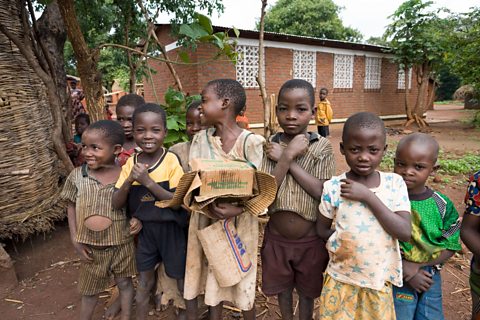Children's rights in Malawi
Malawi became an independent country in 1964. There was just one political party and the country was not a democracy.
Since 1994 there have been multiple political parties and the government has been elected by the people.
Malawi is a democracyA type of government where people govern themselves or elect representatives to govern for them.. So unlike China, children do not have their rights curtailed because of the type of government.
But children do miss out on their rights because of poverty and inequality.

Education
Only 51% of children in Malawi finish primary school and 38% start secondary school, which impacts on their right to an education.
This is often because:
- they have to go to work instead of school
- a lack of school buildings or teachers
Education is seen as important in Malawi but it is expensive and there often aren’t enough qualified teachers in all parts of the country.
Standard of living
Children have a right to an adequate standard of living but this is also difficult in Malawi because of poverty. In 2018:
- 12 million people in Malawi did not have access to somewhere to wash their hands
- 4 million people were not able to drink safe drinking water
These examples show that although children still have the right to an education and safe drinking water, in some places this isn’t possible. Many groups of people such as UNICEFUnited Nations International Children's Emergency Fund and other charities are working to try to fix this.